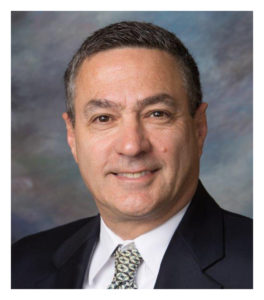Matt D’Oria is Director of the Quality Institute’s Medicaid Policy Center (MPC). He also is a former Deputy Commissioner of the New Jersey Department of Health. He talked with Take Five about the creation of the MPC.
Why did the Quality Institute create a Medicaid Policy Center?
The Quality Institute has been around for over two decades and through our health policy work and the expertise of  our board and staff members, including many who used to work in state government, we understood the day-to-day demands of regulators. Health care technology, health care data, the ACA — all these changes are altering health care. And as the size and scope of Medicaid has grown and we’ve seen government shrink. Medicaid covers nearly 20 percent of our population. We saw the need for an independent, nonpartisan health policy center to assist government by taking a broader, longer-term look at ways to make the program more effective for beneficiaries and more cost effective. We saw how our expertise and our ability to pull in people from all corners of health care could provide ideas to strengthen and improve the state’s Medicaid program.
our board and staff members, including many who used to work in state government, we understood the day-to-day demands of regulators. Health care technology, health care data, the ACA — all these changes are altering health care. And as the size and scope of Medicaid has grown and we’ve seen government shrink. Medicaid covers nearly 20 percent of our population. We saw the need for an independent, nonpartisan health policy center to assist government by taking a broader, longer-term look at ways to make the program more effective for beneficiaries and more cost effective. We saw how our expertise and our ability to pull in people from all corners of health care could provide ideas to strengthen and improve the state’s Medicaid program.
The Nicholson Foundation funds the MPC. How did the partnership with The Nicholson Foundation develop?
Our partnership with The Nicholson Foundation dates back to 2011 and our work with Medicaid Accountable Care Organizations (ACOs), and we’ve continued working with the Foundation in various ways. Their mission is to address the complex needs of vulnerable populations and they seek sustainable reform. That’s why The Nicholson Foundation wants to support a policy center with staff that will continually seek to improve our Medicaid program and work hand-in-hand with the state to create improvements that are lasting.
Who will be involved in your research and policy recommendations?
As a program of the Quality Institute, the MPC has access to an extensive network of experts from public and private organizations. Our most important collaboration will of course be with the State officials who oversee Medicaid. Many of the Quality Institute’s members are Medicaid providers and managed care organizations and we will continue to gain their insights and guidance about what’s working and what isn’t. We have also built an Advisory Committee that consists of state and national health care, data, and social science experts who will provide a critical external perspective.
How is the MPC different from existing organizations?
The MPC is one of a handful of non-profit organizations dedicated to continuous improvement in their state’s Medicaid programs. There are several academic institutions across the country, including our colleagues at the Rutgers – Center for State Health Policy, that provide rigorous research and program evaluation services for Medicaid. Relying on evidenced-based research, the MPC will be geared more toward identifying the financing, payment reform, and implementation strategies that will move proven concepts from the demonstration phase to full scale operations. In particular, in partnership with the state, we hope to support a focused move to alternative payment models that addresses needed quality improvement.
What are the short-term and long-term goals for the MPC?
In the near term, there are two pressing priorities: improving maternal and child health, and examining the impact of changes in where and how people are accessing care (e.g. emergency department use, urgent care centers, primary care providers, and telehealth options). Longer term, we are looking at cost drivers in the system that can be addressed, including social service needs; and ways to cover more people, possibly through a Medicaid Buy-in program.
